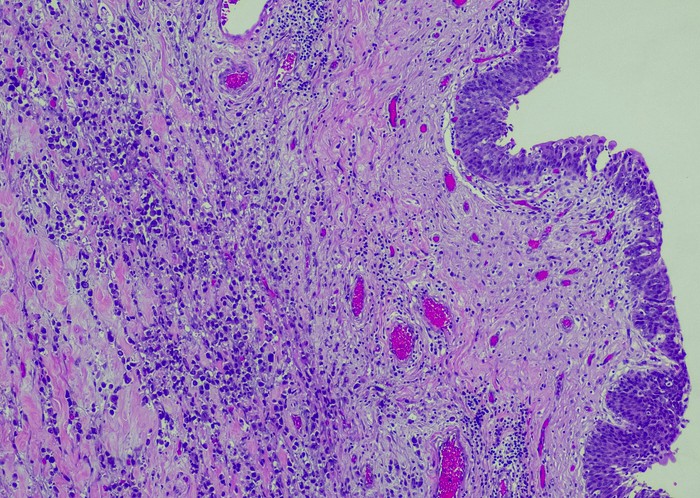
Metastatic bladder cancer immunotherapy outcomes better with antihistamines
Renal + Urology News highlights UC-led research
Renal + Urology News highlighted research led by the University of Cincinnati's Alberto Martini, MD, that found using antihistamines in patients receiving second-line immunotherapy (IO) for bladder cancer may improve outcomes.
The research, published in the journal Urologic Oncology, focused on metastatic urothelial carcinoma (mUC), cancer that begins in the urothelial cells, which line the urethra, bladder, ureters and some other organs. Martini, University of Cincinnati Cancer Center physician-researcher and assistant professor in the Department of Urology in UC's College of Medicine, served as corresponding author of the study.
Using data from two clinical trials, the researchers identified 896 patients who were treated with second-line IO drug atezolizumab. Out of those patients, 155 patients received concomitant antihistamines and 741 did not.
Antihistamine users had 41% lower risk for all-cause mortality, 42% lower risk for cancer death and 30% lower risk of cancer progression compared to patients that did not receive antihistamines.
“Our results show a positive association between the use of antihistamines and oncologic outcome in patients with mUC treated with IO,” Martini and colleagues concluded.
Read the Renal + Urology News story.
Featured photo at top of urothelial carcinoma cells stained purple. Photo/OGPhoto/iStock.
Related Stories
Love it or raze it?
February 20, 2026
An architectural magazine covered the demolition of UC's Crosley Tower.
Social media linked to student loneliness
February 20, 2026
Inside Higher Education highlighted a new study by the University of Cincinnati that found that college students across the country who spent more time on social media reported feeling more loneliness.
Before the medals: The science behind training for freezing mountain air
February 19, 2026
From freezing temperatures to thin mountain air, University of Cincinnati exercise physiologist Christopher Kotarsky, PhD, explained how cold and altitude impact Olympic performance in a recent WLWT-TV/Ch. 5 news report.
